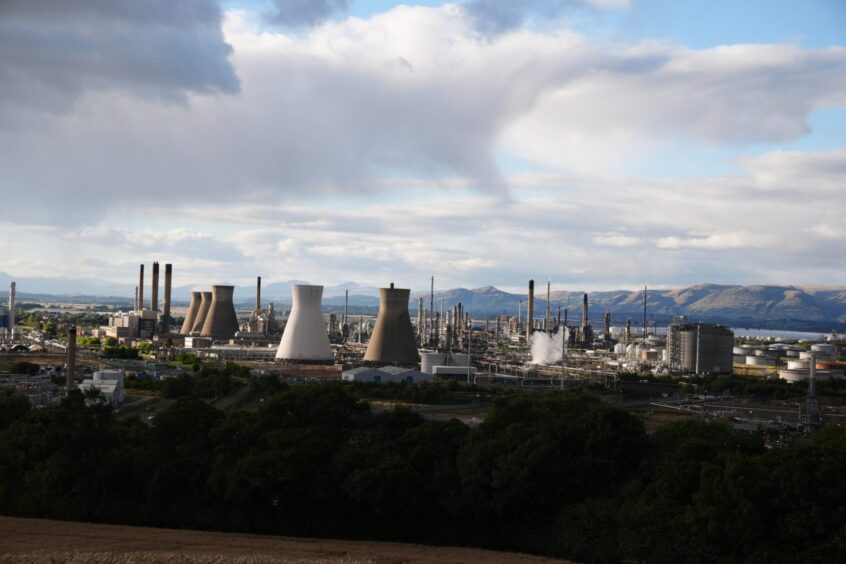
Billionaire industrialist Sir Jim Ratcliffe has blamed Britain’s lack of industrial strategy and levies on carbon polluters for the closure of the UK’s last plant producing synthetic ethanol.
He said the closure of the plant at Grangemouth in January, which will cost up to 80 jobs on the site, sounded the death knell for chemicals manufacturing in the UK.
“We are witnessing the extinction of one of our major industries as chemical manufacture has the life squeezed out of it,” he said.
A UK Government spokesperson said the closure was “disappointing news from Ineos” and then pointed to the Scottish Government’s “failure” to have a “credible industrial strategy over the past 14 years”.
The statement added: “That is why the UK Government is developing an industrial strategy that works for Scotland and the whole of the UK, but that comes after over a decade where Scotland’s industries had no joined up plan for growth.”
For its part, the Scottish Government said it was addressing the crisis at Grangemouth with a draft just transition plan as well as a £100 million funding package from both governments, dubbed “project willow”.
It insisted it wants to see a “long term and sustainable future for the Grangemouth industrial cluster including for Ineos’ petrochemicals business” but preferably if its business is low carbon.
“We will continue to explore viable routes to support industrial emitters at Grangemouth as they decarbonise and transition to low carbon and renewable projects,” it added.
Ineos, which jointly owns the massive complex with Chinese state-owned PetroChina, is thought to be one of the world’s largest producers of synthetic ethanol which is a petrochemical made from ethylene.
It has been producing 226 million litres per year of the chemical in the site, which it said is largely used healthcare and pharmaceutical sectors, for about 40 years.
The closure of the plant comes as the latest blow to Grangemouth, after PetroIneos set out plans to shut down its refinery there later this year, with the loss of around 400 jobs.
Ineos noted that energy prices have doubled in the UK in the last five years and now stand five times higher than those in the US.
“The UK cannot compete with such a huge disadvantage” the firm said.
Ratcliffe said high prices and pollution tax was not an effective measure to reduce carbon emissions.
“De-industrialising Britain achieves nothing for the environment. It merely shifts production and emissions elsewhere.
“The UK, and particularly the North, needs high quality manufacturing and the associated manufacturing jobs.”

 © Andrew Milligan/PA Wire
© Andrew Milligan/PA Wire